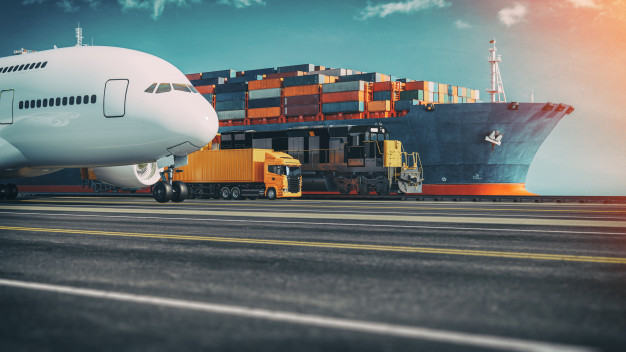
Are you planning on transporting a large number of goods and worried about some extra miles being added to your trip because of inconvenient routes? Perhaps you are worried about whether or not you are choosing the most economical route. Going with intermodal transportation may be the solution to making your life easier. What are a few things that we should know before getting started?
Why use Intermodal Instead of OTR (on the road)
OTR, or On The Road, is the traditional trucking transport method that has been a tried and true classic. You know exactly where your cargo will be and who is in possession of it at all times, as you will either have contact with the driver or with the shipping service.
Does this really mean that the cargo is in safer hands though? Breaking away from the standard accepted method can be difficult but let’s have a look at the benefits of intermodal transportation before we make any rash decisions.
- If you are transporting by rail, you could enjoy some significantly reduced costs. The loads that you will be able to transport will be the equivalent of dozens of truckloads. If you don’t have the number of trucks available that you require, this method will completely circumvent that issue.
- Even though the expectation might be that you lose track of the delivery between destinations, it’s actually the opposite. With a lot of intermodal transportation companies, you will be notified at each stop that the delivery will take. Some containers will also be GPS trackable.
- Supply lines that support a longer route (e.g. railways) mean that there will be less handling of the cargo with loading/unloading. Avoiding roads as much as possible will also reduce your cargo from the possibility of collisions and other hazards of driving.
- Reduce your carbon footprint! If you choose to transport by rail, for example, which has been proven to be significantly better for the environment over longer distances, you’ll be drastically reducing potential emissions.
- If you are transporting expensive high-value goods then this will be even more of a cost-effective solution for you to the differences in the insurance that you will receive.
Things to Keep in Mind About Intermodal Transport
Even though there are a lot of benefits to using Intermodal transportation, there are still a number of issues that you will run into.
- Route reliability can be an issue. If you are attempting to ship in or around a location where there is no presence of a well-established supply chain, you may find difficulty in getting your goods to where you need them to go.
- Some goods or contents that you wish to ship in a container using intermodal transport will be restricted, usually for some combination of being banned for travel on the transport of choice.
- There is a slightly lower weight per load. This usually won’t be enough to make a difference, but it’s worth considering.
- If you are shipping smaller amounts, then you may have trouble establishing a contract with a shipper as they will only be prepared to shiploads with a specific volume and minimum times per week.
- There aren’t many options available for hiring a company to handle your transports. It is a market that continues to grow alongside demands for energy-efficient shipping solutions, but due to the issue with routes and lack of infrastructure, it can be hard to find a company that will actually provide you this service.
- You will want to be careful about ensuring that the load is secure. This should be done with the blocking and bracing technique, otherwise, you will face unnecessary costs from shipments being sent back or damaged
Different Types of Intermodal Transport
There are to main types of intermodal transportation methods that can be used and combined depending on the length of the route, and each carries with them their own advantages and disadvantages that will be unique to your requirements.
- Freight Railroads: One of the most typical types of intermodal transport, using rail will be one of the most economically and environmentally friendly options on this list. If you are shipping freight in a country that has a well-established supply line of freight rails, this will be a go-to choice. Shorter distances may render these methods slightly less efficient than OTR.
- Container Ships: Container ships are large sea vessels that are capable of transporting upwards of a potential 1000 containers. One drawback of this method the fact that sea routes will sometimes have very specific restrictions put on them. You will also require drayage to and from the port.
As you can see, there’s a lot to take into consideration when deciding if any of these shipping solutions will fit your needs.












